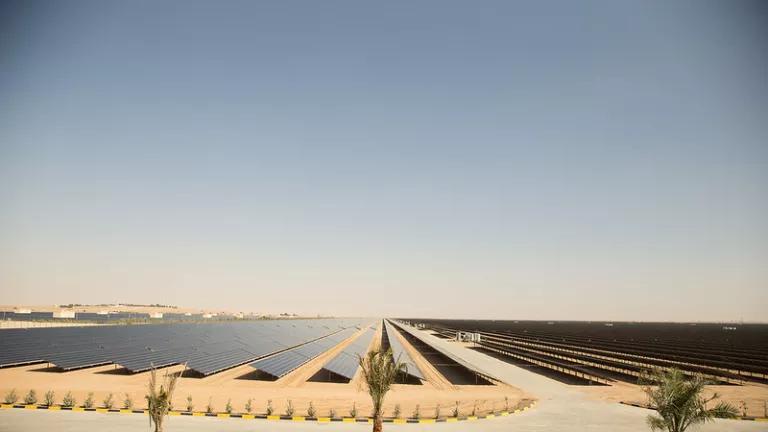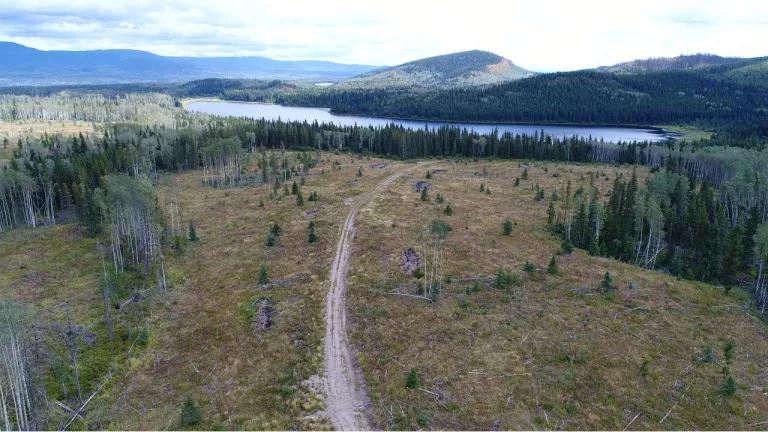UK Should Listen to IPBES and IPCC on Biomass Energy
A new IPBES/IPCC report just provides even more evidence that the UK’s plan to meet net zero goals by relying on a fake climate solution—biomass energy—is completely wrongheaded.

The Intergovernmental Science-Policy Platform on Biodiversity and Ecosystem Services (IPBES)—an independent intergovernmental body assessing the science and policy related to the conservation and sustainable use of biodiversity—and the Intergovernmental Panel on Climate Change (IPCC)—just released a workshop report on biodiversity and climate change. Fifty experts had a four-day virtual workshop discussing the economic activities driving the biodiversity and climate crises and how solutions to both crises can be mutually reinforcing.
The report contains several findings and recommendations that fly in the face of the UK’s reliance on bioenergy to address the climate and biodiversity crises. As my colleague wrote here, the UK is the top importer of wood for dirty biomass energy in Europe and subsidizes the industry with billions of dollars each year—mainly to Drax Power Station.
So, without further ado, here are five recommendations in the report that show the industrial scale biomass energy the UK relies on so heavily ISN'T the answer when it comes to either the biodiversity or the climate crisis:
- We Must Protect Lands—Not Harm Them - The report states that that the area of intact and effectively protected land and ocean required to meet the objectives of a habitable climate, self-sustaining biodiversity, and a good quality of life is likely around 30-50%. This suggests that the UK should not be driving the logging of other countries’ forests for biomass, as it’s doing in the U.S. Southeast—including in a global biodiversity hot spot, Canada’s boreal forest, and Estonia’s nature reserves, among other places.
- We Must Prioritize Protection of Our Natural Carbon Sinks, Like Forests - The workshop found that “[a]voiding and reversing the loss and degradation of carbon- and species-rich ecosystems on land and in the ocean is of highest importance for combined biodiversity protection and climate change mitigation actions with large adaptation co-benefits.” Forests logged for wood to meet UK biomass demand have the capacity to sequester an enormous amount of carbon. When they’re logged, carbon is released into the air and their capacity for carbon sequestration is greatly diminished, even if trees are planted in their place.
- We Must Consider the Impacts of our Climate Strategies on Other Countries - The report also encourages policymakers to “examine how the linkages between policy decisions and consequences unfold over time and how they act beyond the specific spatial context.” In other words, think about the consequences of your actions in the long run and how they might impact other countries! The report specifically points to biomass as an example, stating “increasing demand for bioenergy under climate mitigation policies of one region, can drive significant changes in land use in other regions.” As stated above, this is exactly what's happening in the UK, with UK biomass driving harm to critical forests in many other countries. With the UK hosting COP26, leading the effort to adopt 30x30 at the next meeting of the Convention on Biological Diversity (CBD), and trying to position itself as an overall global leader on climate action and nature protection, it should listen to this recommendation--NOT adopt policies that wreak havoc on other countries’ environments.
- Reforestation Monocultures Can Harm Biodiversity and Cause Other Problems - Some of the wood the UK burns for biomass comes from monoculture tree plantations in Brazil’s Rio Grande do Sul region. The workshop report says these sorts of plantations are a big problem, because they are detrimental to ecosystems, reduce the supply of nature’s other contributions to people (e.g., compete for space with land that provides crops to people for food), and impede achievement of numerous Sustainable Development Goals. These plantations also increase pests and disease, especially if the planted species are exotic and become invasive.
- Afforestation and Reforestation Monocultures May Not Be Legitimate “Nature-based Solutions” - The workshop also found that afforestation and reforestation monocultures may not actually be legitimate nature-based solutions since they “may violate an important tenet of nature-based solutions—namely that they should simultaneously provide human well-being and biodiversity benefits.” The UK is relying on both afforestation and bioenergy to meet climate reductions. But this suggests that what it should really be doing is to stop support for dirty energy, immediately transition to real sources of clean energy, and protect intact natural ecosystems, in particular forests.
Long story short, the new IPBES/IPCC report provides even more evidence that the UK’s plan to meet net zero goals by relying on a fake climate solution—biomass energy—is completely wrongheaded. The UK should abandon this plan immediately and invest in real clean and renewable alternatives like solar and wind (if you live in the UK, you can tell it to do just that right here).



